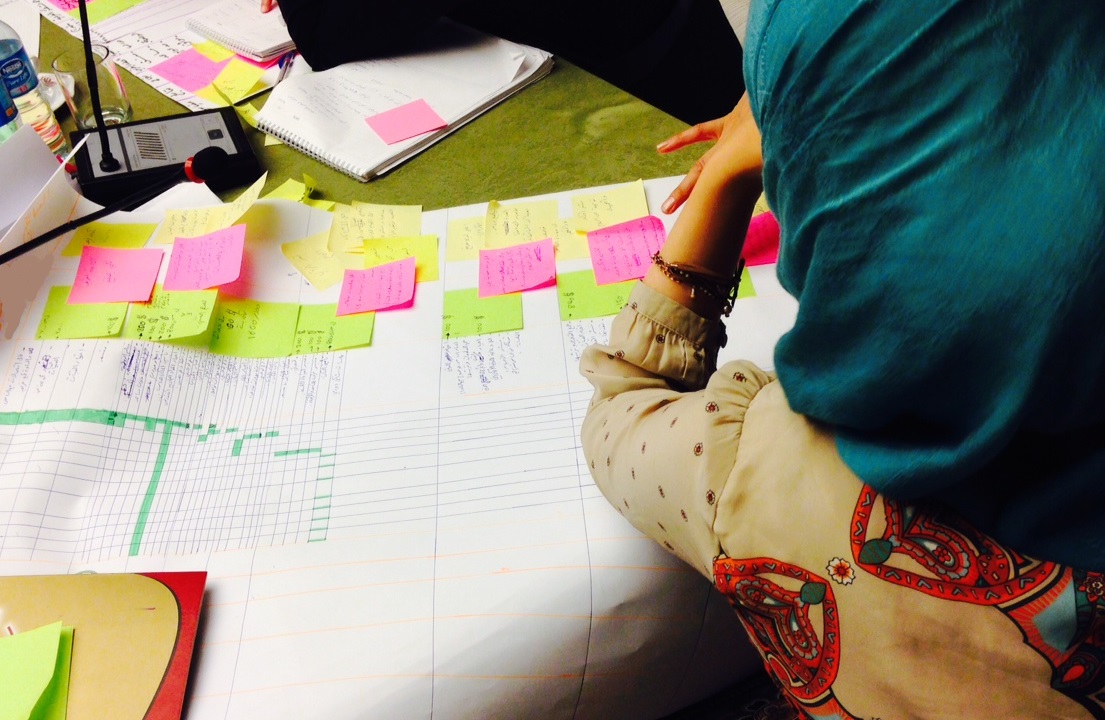Collaboration that Could Make a Difference for the Common Syrian

After years of conflict in Syria, there is still little consensus on how everyday Syrians will be able to reclaim their lives and communities amid such a devastating conflict. A significant part of the challenge in finding that consensus is the complex and often baffling mix of regional, state and international groups competing for power with radically different agendas.
Within the Syrian political context, there are a variety of loose coalitions that oppose the Assad regime but lack a coherent vision for how they can or should work together. The Syrian Opposition Coalition, Syrian Interim Government and High Negotiations Committee are the most visible groups working for a political solution in opposition to the regime, but they are not the only ones exerting influence.
Other regional players and international powers such as Turkey, Iran, Iraq, Israel, Jordan, Russia and the U.S., play a significant role in influencing the political and military environment. While many of these countries may publicly denounce humanitarian atrocities committed by the war’s combatants, some of them share borders with Syria and, for the most part, have quietly worked behind the scenes to secure their national interest with the various actors.
Adding to this complexity, there is a critical lack of leadership at all levels of Syrian society. One of the most significant contributing factors in creating that void has been the exodus of those able to lead, combined with the brutal day-to-day life of those left behind. Most politically active Syrians that did not openly support the regime were either killed, disappeared or fled.
So where does that leave those left inside Syria? To whom do they turn for peace, prosperity and security? None of the official national coalitions mentioned above are able or, in some cases, willing to dedicate the resources necessary to provide a hopeful future to the common Syrian. However, despite the many hurdles Syrians face, there is still a real, reasonable potential for the everyday Syrian to reclaim a semblance of a normal life. Even more importantly, that potential rests within these local communities themselves.
There are two types of local groups with limited power and influence, but significant potential, working on the ground in Syria to provide support to their communities; local councils and local civil society organizations (CSOs).
Local councils are comprised of citizens with influence and authority that have been nominated by their peers to enact a variety of government functions, including providing essential utilities and infrastructure, educational services and other forms of government service delivery. Local CSOs tend to focus on delivering narrow humanitarian services to citizens, such as food and water, medical treatment or rubble removal. Given their overlapping functions, CSOs and local councils have the opportunity to collaborate for the benefit of their communities.
However, the vast majority of local councils have been disbanded throughout the ongoing conflict. Recently, new local councils have emerged, especially in the liberated areas in northeast and northwest Syria. However, they face many challenges. Many were appointed by whatever military group is controlling the area and therefore, lack legitimacy in the eyes of the population they seek to govern. Different local councils reflect the power dynamics of the region and preferences of the group that controls it, be it the Assad regime, opposition groups, Kurdish militias, the Iranians, or extremist groups. Most lack experience in governing and all lack adequate funding. In addition to the burden of navigating complex political landscapes, they face heavy burdens in corruption, bureaucracy, administration and service delivery. Most display a distinct lack of understanding of their role in serving society.
Local CSOs face similar challenges in capacity but usually have a level of legitimacy among the population due to their somewhat reliable ability to provide much-needed services. Local CSOs often focus on the delivery of services rather than advocating to the government on behalf of society. This causes CSOs and local councils to compete for the same funding and undermine the role of the local councils.
What if they worked together? What would happen if a few brave local groups put aside their differences and focused on increased communication, collaboration and really tried help each other to keep the big picture in mind?
The potential net benefit that exists between local councils and CSOs is too significant to ignore if the common Syrian is to ever see services such as reliably clean water, consistently available food and electricity and education for their children, as well as a renewed trust in local authority. These groups must work together in a collaborative fashion. Thoughtful engagement and steady encouragement for increased cooperation between these segments of society by the international community could help alleviate the current discord and help deliver programming and aid on the ground to Syrians who so desperately need it.
With decades of experience across the Middle East, the International Republican Institute’s current Syria programming focuses on building the capacity of civil society organizations, political organizations, and local governance structures. Red Telescope Global (RTG) is strategic advising firm supporting non-profits and businesses who work on difficult international issues. RTG began supporting IRI’s Syria program in 2016.
Top